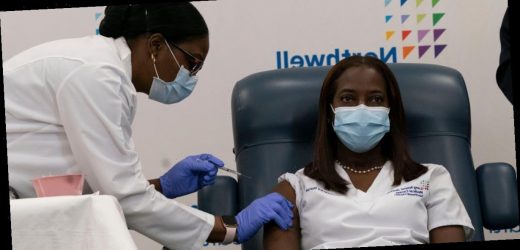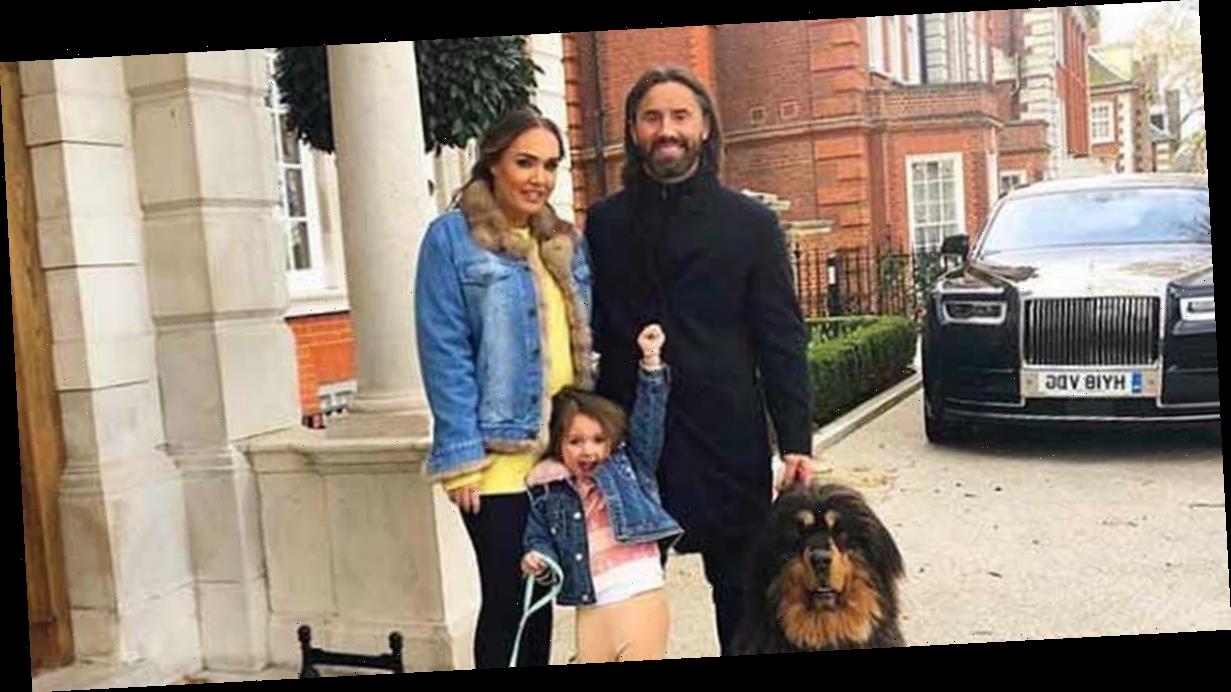- People of color, and Black Americans in particular, may be hesitant to get vaccinated in the US due to a history of racist medical experiments or overall mistrust of the healthcare system.
- In Latinx communities, language barriers can also force people to receive health information through social media, where myths abound.
- But clinical trials overwhelmingly show that coronavirus vaccines are safe for people of color, presenting little threat of long-term side effects.
- Visit Business Insider's homepage for more stories.
Sandra Lindsay didn't know she would be the first person in the US to receive a coronavirus vaccine outside clinical trials. She had volunteered to get the shot on the first day it was available, December 14, as a sign to communities of color that the vaccine was safe.
"That was the goal today," Lindsay, director of critical care nursing at the Long Island Jewish Medical Center, told the New York Times. "Not to be the first one to take the vaccine, but to inspire people who look like me, who are skeptical in general about taking vaccines."
For many people of color — and Black Americans in particular — the US's current vaccination efforts call to mind a painful history of medical exploitation.
"Black people, compared even to Latinx and Asian populations, have had a series of both mistreatment and withholding of treatment," Tina Sacks, assistant professor at UC Berkeley's School of Social Welfare, told Business Insider. "That is not to say that other groups do not face racism and other forms of discrimination in healthcare, but just that Black people face a particularly virulent form of it, and have since the inception of the country."
In the 19th century, physician James Marion Sims performed reproductive health experiments on enslaved women without anesthesia. Starting in 1932, the 40-year Tuskegee experiment denied syphilis treatment to Black men who had enrolled under the promise of free medical care. And from 1961 to 1974, the Holmesburg Prison experiment tested toxic substances and mind-altering drugs on Black inmates in Philadelphia.
Coronavirus vaccine trials have distanced themselves from this legacy by recruiting a diverse group of volunteers. Moderna even slowed down its coronavirus vaccine trial in September to allow more time for volunteers of color to join.
"I would rather we have higher diverse participants and take one extra week," the company's CEO Stéphane Bancel told CNBC, adding that diversity "matters more to us than speed."
As of late October, 37% of Moderna trial participants were non-white. Hispanic/Latinx volunteers made up 20% of participants, while Black volunteers made up 10% and Asian-American volunteers made up 4%.
Non-white volunteers also made up 42% of Pfizer's global trial participants by late December. Hispanic/Latinx volunteers made up 26% of participants and Black volunteers made up 10%. Asian volunteers represented 5% of trial participants, while Native American volunteers represented 1.1%.
Sacks said this diversity might engender more trust in communities of color, but it wasn't necessary to demonstrate that the shots were safe for minority groups. People of color should respond the same as white individuals.
Indeed, in both Moderna and Pfizer's trials, the side effects — which included mostly minor reactions like fatigue, headaches, and pain at the injection site — were consistent across ethnic and racial groups.
Mistrust of the healthcare system could fuel vaccine skepticism
Communities of color have been particularly hard-hit by the pandemic. A new study from researchers at Princeton University found that COVID-19 could reverse more than 10 years of progress in closing the life expectancy gap between Black and white Americans.
For the average American, life expectancy fell by roughly a year due to the pandemic, from 78.6 years to 77.5 years. Black Americans, on the other hand, witnessed a two-year decline in life expectancy in 2020, while Latinx Americans witnessed a three-year decline, according to the study.
More than 70% of Black Americans know someone who has been hospitalized or died of COVID-19, according to a November survey by Pew Research Center.
But only 42% of Black Americans in the Pew survey said they definitely or probably would get a coronavirus vaccine. That's compared to 63% of Hispanic Americans, 61% of white Americans, and 83% of Asian Americans who said they were on board with coronavirus vaccinations, despite knowing fewer people who were hospitalized or died of COVID-19.
Sacks said there may be two factors that discourage Black Americans from trusting vaccines: false information and overall mistrust of the healthcare system.
"It's not so much that Black people or other minorities are unwilling to take [the vaccines], but there is really unequal access to the cutting edge of medicine and medical technology — and that is, in some respects, a bigger problem than reticence to take new treatments," she said.
To this day, she added, Black people in the US are more likely to have their limbs amputated unnecessarily or be denied pain medication compared to white Americans. They're also more likely to receive lower-quality treatment for diseases like cancer and HIV, and less likely to receive treatment for cardiovascular disease.
The same factors that might discourage a Black person from visiting the hospital, then, might also discourage them from getting vaccinated.
The vaccines don't alter a person's DNA or cause long-term side effects
At the same time, Americans live in an era of misinformation, with several lies about coronavirus vaccines being circulating online. These fraudulent theories reach Black, brown, and Asian communities just like any other — but in some cases, language barriers can force people to unduly rely on social media for health information.
"Information that we are reading in different media platforms is often not in a language or at a literacy level that my patients can understand," Dr. Eva Galvez, who treats first and second-generation Latinx individuals at Virginia Memorial Health Center in Hillsboro, Oregon, told NPR. "So definitely this leads to many questions and also leads to much misinformation."
Galvez said she met with a mother who had recently read on social media that the vaccines had long-term side effects.
In reality, adverse reactions to vaccines usually show up within hours. Moderna and Pfizer found no major safety concerns among volunteers at least two months after the participants had received their second injections.
Other online myths have suggested the vaccines may alter a person's DNA or cause someone to develop COVID-19 — but both are unequivocally false.
None of the leading coronavirus shots inject the actual virus, SARS-CoV-2, into the body. Instead, Pfizer and Moderna's vaccines rely on messenger RNA, a harmless snippet of the virus' genome that tells the body to produce one of its signature proteins, thereby spurring an immune response. Once the vaccine is administered, the body destroys mRNA fairly quickly.
In some cases, vaccine myths may be targeted to minority religious groups. Some South Asian communities in the UK, for instance, recently expressed concern after hearing false rumors that the vaccine ingredients derived from meat.
In addition to mRNA, the vaccines contain lipids — fatty substances that help the RNA cross the cell membrane — along with salt, sugar, and a few substances that help stabilize other ingredients. Pfizer said its vaccine doesn't contain any common allergens like nuts, eggs, or heavy metals, either.
In rare cases, people may be allergic to an ingredient called polyethylene glycol, found in the lipid component of the vaccines. But most people ingest this ingredient daily in foods, cosmetics, and medications (it's in the over-the-counter product MiraLAX).
Combatting this misinformation is challenging, Sacks said, particularly when state public health departments are already stretched to distribute vaccines and care for sick patients.
"The federal government is in many ways the only entity that has the money, the reach, the scope, the capacity to do such [an educational] campaign," she said.
But the government's primary focus, she added, should be making sure that people of color have the option to get vaccinated in the first place.
"I really do think that the issue here is going to be more: How do we get it to people who are underinsured? How do we get it to people who don't have a regular source of care?" Sacks said. "And then of course also trying to undo centuries of harm that lead people to distrust the medical establishment."
If you have a story about the coronavirus pandemic you’d like to share, email us at [email protected].
Get the latest coronavirus business & economic impact analysis from Business Insider Intelligence on how COVID-19 is affecting industries.
Source: Read Full Article


